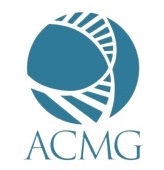Medical biochemical geneticists are physicians who provide comprehensive diagnostic, management,
Medical biochemical geneticists focus on the treatment of genetic disorders of intermediary metabolism, lysosomal storage diseases, disorders of energy metabolism, and related disorders. Medical biochemical geneticists: a) diagnose and provide acute management of inborn errors of metabolism; b) provide long term management, including nutritional recommendations for chronic management of inborn errors of metabolism; c) provide genetic counseling, including assessment of mode of inheritance, recurrence risk, and information about natural history of disease; d) use their knowledge of heterogeneity, variability and natural history of inborn errors of metabolism in patient-care decision making; e) elicit and interpret individual and family medical histories; f) order and interpret specialized laboratory testing; and, g) interact with other health-care professionals, especially nutritionists, in the provision of services for patients with genetic disorders of intermediary metabolism.

American College of Medical Genetics and Genomics
acmg.net
7101 Wisconsin Ave
Ste 1101
Bethesda, MD 20814
(301) 718-9603
Email: [email protected]